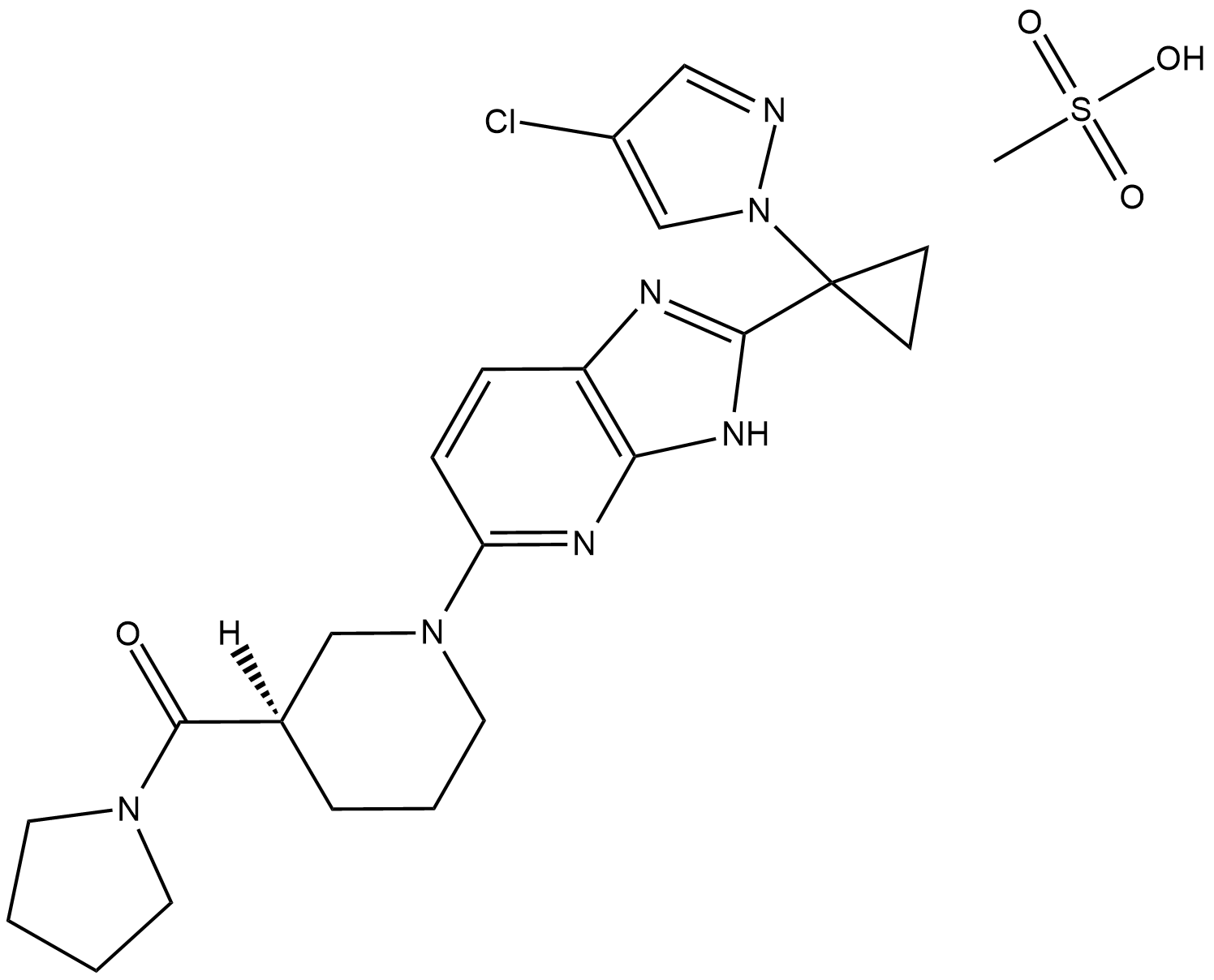PF-06424439 |
| Catalog No.GC18959 |
PF-06424439 is an oral, potent and selective imidazopyridine diacylglycerol acyltransferase 2 (DGAT2) inhibitor with an IC50 of 14 nM.
Products are for research use only. Not for human use. We do not sell to patients.

Cas No.: 1469284-79-4
Sample solution is provided at 25 µL, 10mM.
PF-06424439 methanesulfonate is an oral, potent and selective imidazopyridine diacylglycerol acyltransferase 2 (DGAT2) inhibitor with an IC50 of 14 nM[1]. PF-06424439 methanesulfonate is slowly reversible, time-dependent inhibitor, which inhibits DGAT2 in a noncompetitive mode with respect to the acyl-CoA substrate[2].
PF-06424439 methanesulfonate (p.o.; 60 mg/kg/day; for 3 days) reduces plasma TG and cholesterol levels and decreases nonsignificant in circulating lipids in mice (Ldlr-/-)[1].PF-06424439 methanesulfonate (i.v.; 1 mg/kg) shows moderate clearance in rats following intravenous administration and moderate steady-state volume of distribution (Vdss) results in a short half-life[1].
References:
[1]. Futatsugi K, et al. Discovery and Optimization of Imidazopyridine-Based Inhibitors of Diacylglycerol Acyltransferase 2 (DGAT2). J Med Chem. 2015 Sep 24;58(18):7173-85.
[2]. Pabst B, et al. Mechanistic Characterization of Long Residence Time Inhibitors of Diacylglycerol Acyltransferase 2 (DGAT2). Biochemistry. 2018 Dec 26;57(51):6997-7010.
Average Rating: 5 (Based on Reviews and 24 reference(s) in Google Scholar.)
GLPBIO products are for RESEARCH USE ONLY. Please make sure your review or question is research based.
Required fields are marked with *




















